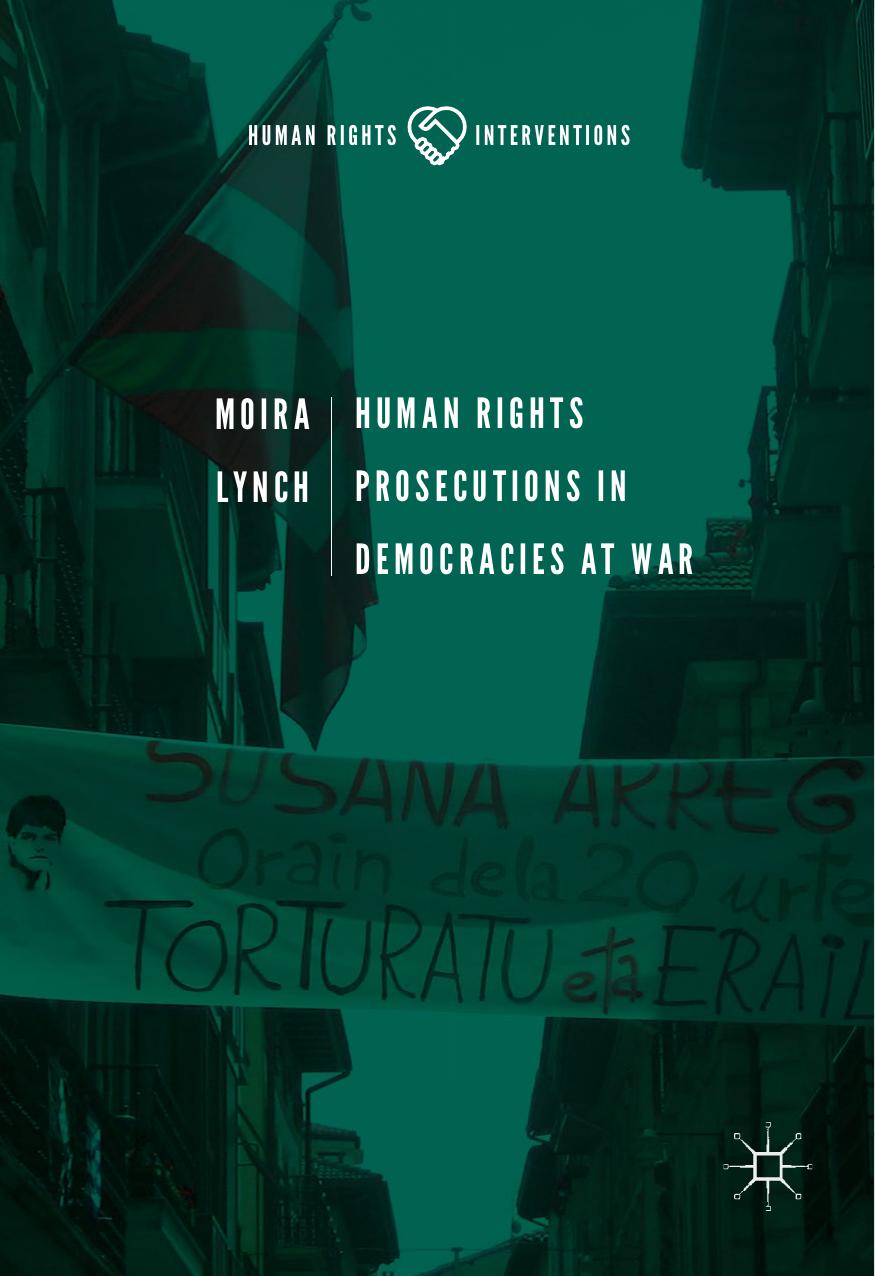Human Rights Prosecutions in Democracies at War by Moira Lynch

Author:Moira Lynch
Language: eng
Format: epub, pdf
ISBN: 9783319969084
Publisher: Springer International Publishing
Post-conflict Prosecutions and Legal Reforms
A few years after the Belfast Accord was signed in 1998, several important cases brought against the state regarding civilian deaths at the hands of the security forces were successful at the European Court.114 This may have resulted from the fact that the conflict was in the process of being resolved during this time, and thus the Court was willing to be stricter in their judgments against the British government. Some of these cases shaped policy concerning the domestic investigation and prosecution of state actors for conflict-related human rights violations.115
The common thread among the post-conflict cases was that the families and their legal representatives argued that the state had not conducted a full investigation of the deaths in order to ascertain whether state actors had behaved illegally when carrying out the killings. The European Court ruled that the British government had failed to satisfy the procedural aspects of Article 2 of the ECHR , which outlines the right to life and specifically stipulates when the use of force is considered necessary and legal. The Court also drew on Article 1 of the ECHR to argue that in order to secure citizens’ rights within the convention, investigations of civilian deaths through the use of force must be thorough and effective. The Court laid out a list of requirements that would support the execution of an investigation that was aligned with the Convention. The requirements included: a stipulation that those who investigate the deaths are independent from the people who are implicated in the crime and not only in a hierarchical sense; the investigation must be completely thorough, drawing on multiple forms of evidence, in determining whether force was justifiable; the investigation must be prompt with attention to maintaining public confidence in adherence to the rule of law; and the investigation must be subject to some level of public scrutiny and next of kin must be involved to the greatest extent possible.116
The response from the British government to the Court’s ruling, and its identification of definitive steps to take in future investigations, was fairly proactive. Specific changes to law and policy resulted, though not without contestation. Beginning in 1999, judges, as opposed to government ministers, were given the power to decide on the content that could be subject to a public interest immunity certificate (PIIC) . In 2000, a Police Ombudsman was created to independently investigate complaints against the police and in 2002 the Public Prosecution Service (formerly the DPP) began to formally provide reasons if and when they decided not to prosecute a case involving civilian deaths at the hands of the state.117
Finally, in a move to establish an actual system for processing unresolved crimes that include state and non-state actor violence, including crimes of murder and rape, the Chief Constable of the new police service, Police Service Northern Ireland (PSNI), created a review team within the PSNI, which later became the Historical Enquiries Team (HET) in 2005. The HET included a team of mostly retired police
Download
Human Rights Prosecutions in Democracies at War by Moira Lynch.pdf
This site does not store any files on its server. We only index and link to content provided by other sites. Please contact the content providers to delete copyright contents if any and email us, we'll remove relevant links or contents immediately.
The Pirates of Somalia by Jay Bahadur(1621)
Political Theology by Carl Schmitt(1577)
The Holocaust: A New History by Laurence Rees(1519)
The Social Animal by David Brooks(1451)
A Practical Guide to International Arbitration in London by Hilary Heilbron(1426)
Restitution by Restitution(1424)
Pirates of Somalia by Jay Bahadur(1376)
Coercing Virtue by Robert H. Bork(1356)
The Nuremberg Interviews by Leon Goldensohn(1302)
Basic International Corporate Taxation by Sebastiano Garufi(1205)
A History Of Thailand by Baker Chris(1177)
International Trade and Business: Law, Policy and Ethics by Gabriël Moens & Peter Gillies(1137)
The Global Commons by Susan J. Buck(1137)
The Sovereignty of Human Rights by Macklem Patrick(1113)
Blood Profits by Vanessa Neumann(1113)
Asian Waters by Humphrey Hawksley(1113)
Spring Fever: The Illusion of Islamic Democracy by McCarthy Andrew C(1096)
The Nuremberg Trials: The Nazis and their Crimes Against Humanity by Roland Paul(1043)
Crimes Against Humanity: Historical Evolution and Contemporary Application by M. Cherif Bassiouni(1020)
